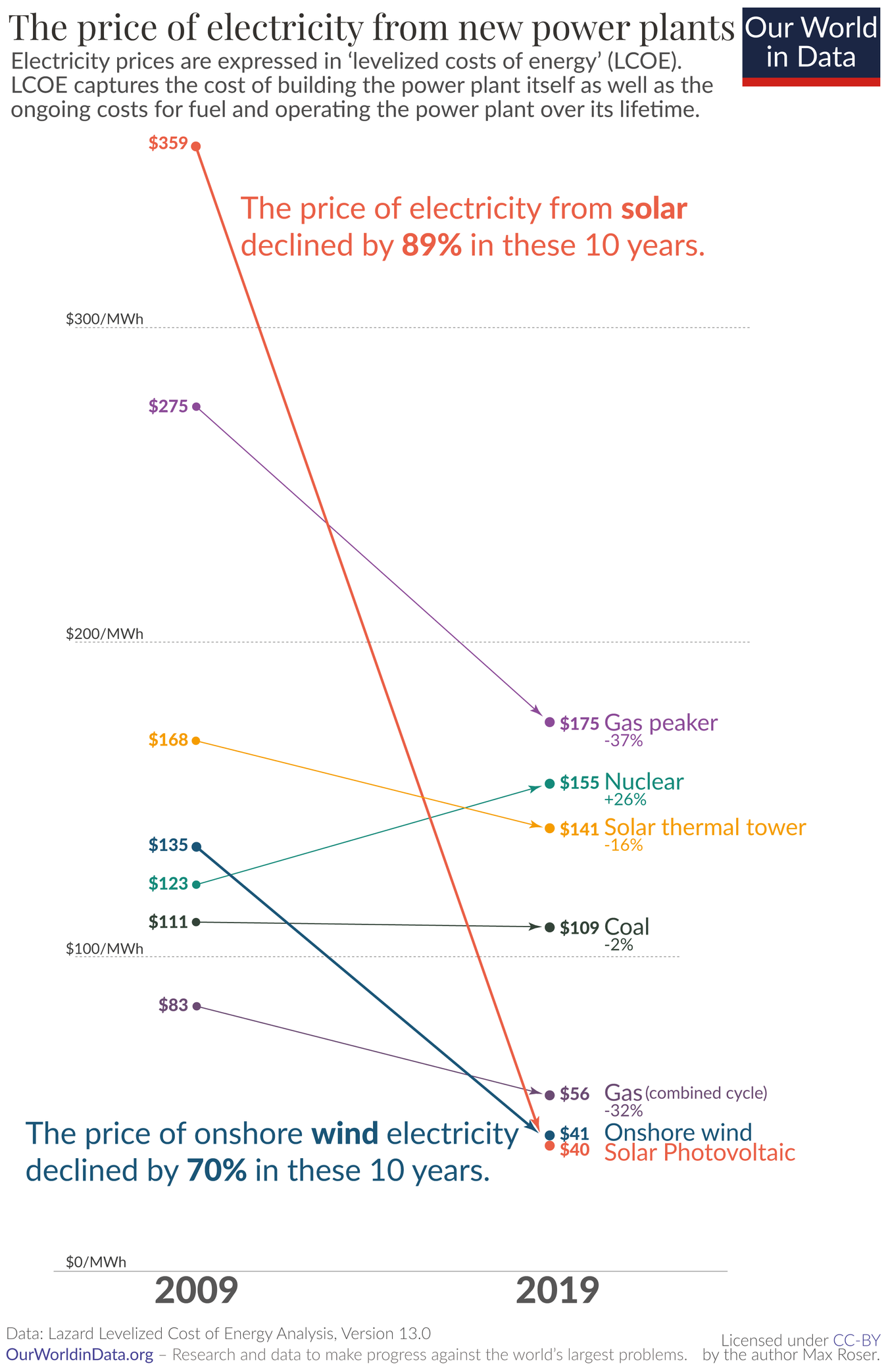Technology
This is the official technology community of Lemmy.ml for all news related to creation and use of technology, and to facilitate civil, meaningful discussion around it.
Ask in DM before posting product reviews or ads. All such posts otherwise are subject to removal.
Rules:
1: All Lemmy rules apply
2: Do not post low effort posts
3: NEVER post naziped*gore stuff
4: Always post article URLs or their archived version URLs as sources, NOT screenshots. Help the blind users.
5: personal rants of Big Tech CEOs like Elon Musk are unwelcome (does not include posts about their companies affecting wide range of people)
6: no advertisement posts unless verified as legitimate and non-exploitative/non-consumerist
7: crypto related posts, unless essential, are disallowed
view the rest of the comments

Hey, likewise, thanks for a sensible debate.
I definitely think 0 nuclear is possible, just a lot expensive than “mostly renewable with some nuclear.”
I’ve commented extensively on this before here on Lemmy, let me copy pasta here:
Here’s a couple of good papers and articles on the topic:
A systematic review of the costs and impacts of integrating variable renewables into power grids - a large meta-study from Nature Energy showing that the externalised additional cost of integrating 1 MW of renewable production hits £40/MWh between 75% to 85% renewable penetration. Beyond that no studies have been done, but already at this level, renewable would be more expensive than nuclear (at auctioned build-prices today).
Real-World Challenges with a Rapid Transition to 100% Renewable Power Systems - finds that even if you set the Value of Lost Load to £40,000/MWh in a 100% renewable grid, you’ll still get power outages after 2030. It’s not equivalent to externalised cost of renewable integration, but is a heavy indicator that without forcing massive fines on renewable providers, the reserve capacity won’t be provided (it’ll be cheaper for them to just pay the fine). The study finds that a fine of £4 million (!) per required-but-not-fulfilled MWh is needed to encourage providers build the reserve capacity (through distribution, storage etc.).
How much can nuclear power reduce climate mitigation cost? - shows that nuclear will lower the cost of getting to zero carbon electricity product by 40%+, compared to refusing to use nuclear energy production.
Burden of proof: A comprehensive review of the feasibility of 100% renewable-electricity systems - shows some of the challenges of the assumptions that people make in thinking renewables will get us all the way there.
Projected Costs of Generating Electricity - shows that, all costs considered, nuclear remains an extremely cheap way to create energy, even up against renewables.
Local Complementarity of Wind and Solar Energy Resources over Europe: An Assessment Study from a Meteorological Perspective - shows that at least in Europe, wind and sun don’t anti-correlate (in other words, we’re not going to get energy from the sun on non-windy days and energy from the wind on cloudy days. Also shows there are many periods (days long) in Europe where we have don’t get neither sun nor wind. So storage will have to last us days across Europe.
Many of these articles refer to many other articles you may find interesting.
Overall, my point is that it does us (collective “us”, not just “you and me”) no good to argue that “it’ll be alright if we just commit to renewables”. One has to argue against these peer reviewed studies, done by experts in the field, many collecting and meta-reviewing many other studies, to argue that “renewables will be enough”.
And these are not “cooky studies” in “cooky journals”. Nature, Cell, Joule are some of the most respected journals, with the highest impact ratings and the authors & their reviewers have studied these topics for years.
I’m all for more renewables! But it won’t be enough!